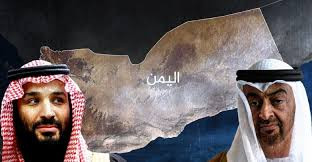
SANAA, May 6 (Saba) – Five years after the start of Operation Decisive Storm in Yemen, the Saudi and Emirati dream of reviving the greatness of the kingdom has turned into a nightmare.
it's now been a full five years since the start of the Yemen war. In spite of the grandiloquent declarations of the coalition officials, Riyadh and its allies are bogged down in a military and humanitarian catastrophe.
When the war in Yemen began in late March 2015, Saudi-led coalition leaders thought it would last a few short weeks. Confident in its military might, and eager to confirm its role as the undisputed leader of the Arabian Peninsula - considered the inviolable preserve of the al-Saud dynasty - the oil monarchy went around tooting its own horn, as major changes were occurring at the highest levels of the dynastic hierarchy.
The kingdom is now incapable of even ensuring its own safety. Though hundreds of billions of dollars have been injected into ultra-sophisticated military technology.
After five years, in fact, it is fair to say that the Saudis and their mercenaries are on the verge of defeat. The Yemeni armed forces and “popular committees” which include Houthi forces are continuing their advances with their sights set firmly on the stronghold of Marib and the pro-Hadi, Islah militia which makes up the coalition-backed force on the ground.
The terrain, internal divisions among the mercenary forces, local distrust of Hadi and the relative ease of establishing relations in tribal areas captured by the Houthis are also reasons for their advance.
Developments in missile defence systems , according to the Yemeni armed forces, have been effective against some Saudi air strikes, coupled with more pre-emptive cross-border operations targeting Saudi military and economic interests.
The Yemeni military spokesman, Brigadier General Yahya Saree, told a press conference that there have been more than 257,000 coalition air strikes over the past five years and warned that the sixth year “will be harsher and more painful”. In doing so he affirmed that Yemen is not in the same position militarily that it was at the start of the War.
Since the Saudi-led coalition launched its war in Yemen in March 2015, the UAE has been a key player. Abu Dhabi has focused more on the south, training security forces to secure its own geopolitical ambitions.
The UAE's long-term goals have become increasingly clear: to divide Yemen and create a friendly southern state, which would secure trade routes through the port of Aden to the rest of the world; to exploit Yemen’s natural resources; and to empower itself as a regional hegemony.
To justify its presence in Yemen, the Emirati regime is fixated on presenting itself as a force for stability. It often highlights charitable donations of humanitarian aid to the country, while dismissing reports of its role in unlawful detention practices as "fake news".
Despite this benevolent guise, evidence shows the UAE is not a force for good in Yemen. Human rights groups have cited torture and other abuses within UAE-backed prisons in southern Yemen, and the Associated Press reported on the use of sexual assault "to brutalise and break inmates". Amnesty International has also chronicled the practice of forced disappearance.
At the same time, humanitarian organizations will continue to reveal the abuses at the hands of UAE-backed forces in the south.
The military coalition led by Saudi Arabia and the United Arab Emirates in Yemen has killed thousands of civilians in airstrikes, tortured detainees, raped civilians and used child soldiers as young as 8 — actions that may amount to war crimes, United Nations investigators in report.
The report singled out Saudi and Emirati airstrikes for causing the most civilian casualties, saying they had hit residential areas, markets, funerals, weddings, jails, boats and medical facilities.
The main cause of civilian casualties in the war, the report says, has been airstrikes by the Saudi-led coalition, inflicting a level of damage on civilians that “certainly contributed to Yemen’s dire economic and humanitarian situation.”
It remains to be seen, therefore, how much longer the Saudis will continue their disastrous and illegal intervention in Yemen, especially with the oil war and looming bankruptcy as oil prices fall, not to mention domestic political crises between de facto ruler Crown Prince Mohammad Bin Salman and his rivals. The Saudis will soon find that they have neither the will nor the wealth to carry on.
Mona.M